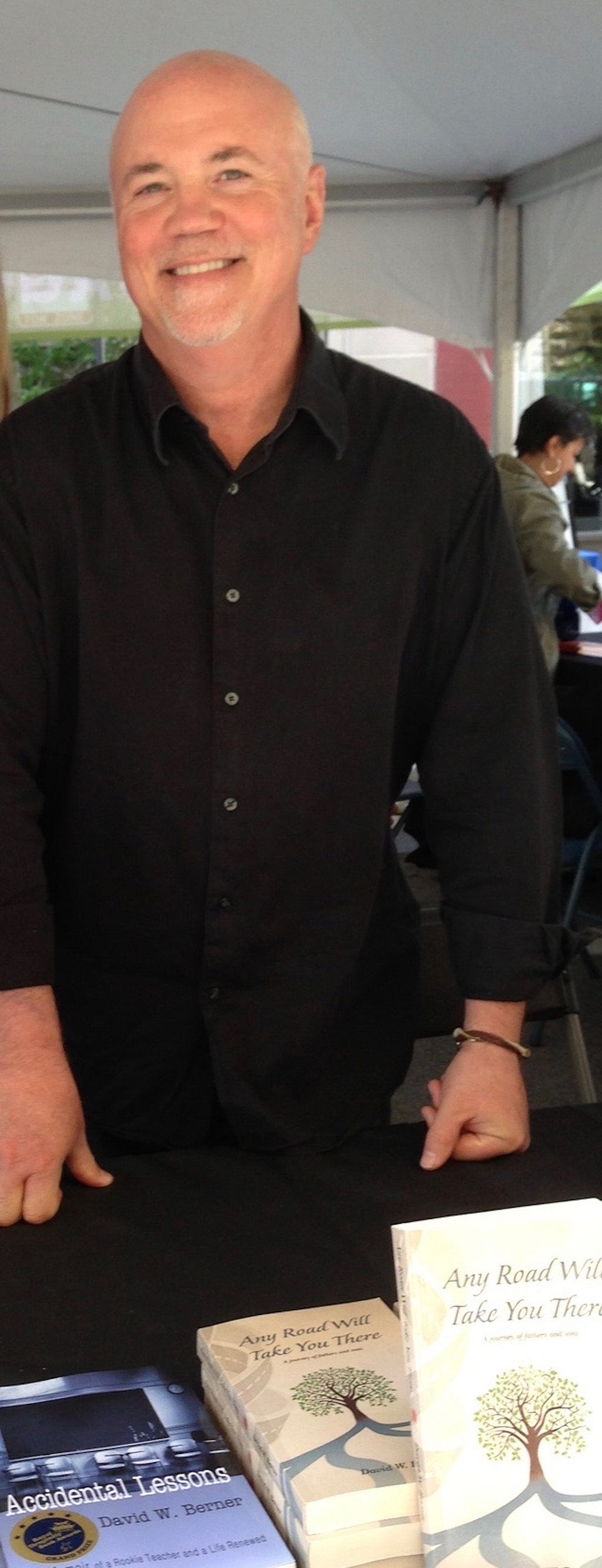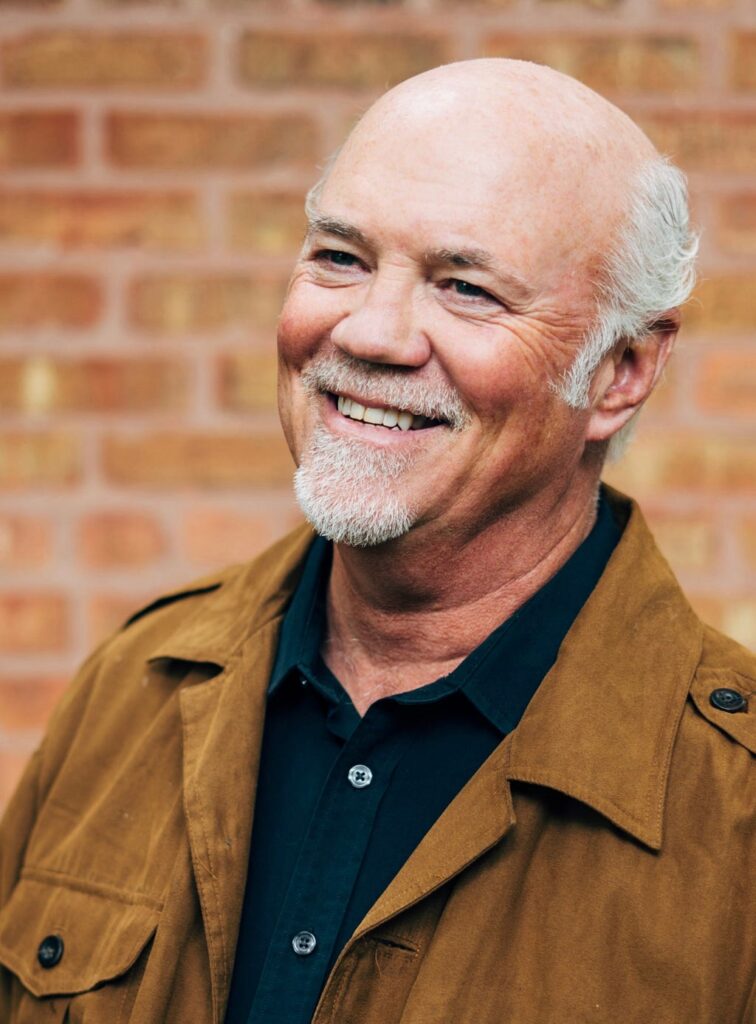David W. Berner On How To Write A Author Book That Sparks A Movement
An Interview With Jake Frankel
Write with authenticity. Be truthful. The reader knows when you’re faking it.
As part of my series about “How to write a book that sparks a movement” I had the pleasure of interviewing David W. Berner.
David is an award-winning journalist, broadcaster, author, and teacher. He is the best-selling, award-winning author of 12 works of fiction, creative nonfiction, memoir, short stories, and poetry. He has won an Eric Hoffer Book Award, Book Excellence Award, NYC Big Book Award, National Association of Independent Writers and Editors Award for Literary Fiction, and the Book of the Year Award from the Chicago Writers Association. David has been honored as the Writer-in-Residence at the Jack Kerouac Project in Orlando, FL and the at the Ernest Hemingway Birthplace Home and Museum in Oak Park, IL. David is a long-time Chicago broadcast journalist and now also teaches writing at Gotham Writers Workshop of New York City. With his latest book, Daylight Saving Time, David’s goal is to inspire a movement towards a positive outlook on aging. He encourages others to explore the idea that aging is a privilege, rather than a challenge or period of decline; it is a kind of adventure that should be embraced.
Thank you so much for joining us! Can you share the “backstory” of how you grew up?
I grew up in a blue-collar neighborhood just outside Pittsburgh. My father was a carpenter who became an insurance agent. My mother was a stay-at-home mom in the era when that was the norm. My childhood was full of friends in the neighborhood who journeyed on our bikes all day in the summer, who hung out in the nearby woods, who played pick-up baseball in a field adjacent to the old Greek orthodox cemetery, and who came home on summer nights when the street lights came on. When i was a young teenager, I was a paperboy, delivering the Pittsburgh Press. It was the same route my father had when he was paperboy as a young man. I attended clarion college in Pennsylvania, the first in my family to attend post-high school education. I left Pittsburgh in 1988 to take a job as a broadcast journalist in Chicago.
When you were younger, was there a book that you read that inspired you to take action or changed your life? Can you share a story?
Books were always part of my growing up. My mother was a voracious reader and she was always buying me books. As a young boy I found great interest in the ocean and sea. It was all so fascinating. She bought me 20,000 Leagues Under the Sea by Jules Verne. After reading it, I was determined to be an oceanographer. I fell in love with the Jacque Cousteau documentaries on TV at the time. I never became an oceanographer, but what the book truly did for me was allow me to dream of the possibilities. I could be anything I wanted. My mother taught me that and that book taught me that.
What was the moment or series of events that made you decide to bring your message to the greater world? Can you share a story about that?
I’m not sure I knew what or even if I had a “message” to share. But over time, I learned that what I really was a storyteller. I was a musician, later a journalist, and then an author and all of that stemmed in some way from the art of storytelling. Stories are part of the human condition and I wanted to be the one telling the story. It didn’t matter if it was through music, writing, or broadcasting, it was all the same, my “message” was whatever the story was about.
What impact did you hope to make when you wrote this book?
My book, Daylight Saving Time, came out of my own personal journey of growing older. I wanted to understand what that meant, how it fit into a life, and how one embraces this inevitable journey. The book is not a book of advice or a “how to,” but is rather a personal story of how to accept and revel in the aging process. I had a heart attack in my fifties, and that triggered a new way of looking at the remaining years of my life. What was I going to do with them, who was I going to be, and how was I going to make the best of my remaining days? That’s the essence of Daylight Saving Time.
Did the actual results align with your expectations? Can you explain?
When I write memoir, I write from the heart. I had no true expectations. I only wanted to be real, authentic, and truthful. I think I did that. And I think that is way I believe the book resonates with others.
What moment let you know that your book had started a movement? Please share a story.
Whether or not I’ve started a “movement” or not is still before the jury. But I know I’ve started an opportunity to rethink what aging means. I wanted to share this with others and Daylight Saving Time is my attempt to do just that. There is no reason to see aging as the beginning of the end. Instead, it should be seen as an inevitable part of life that can be a culmination of the wisdom and the spirit one has nurtured over time.
What kinds of things did you hear right away from readers? What are the most frequent things you hear from readers about your book now? Are they the same? Different?
The responses many times have been very much the same. It seems Daylight Saving Time has given readers a sense of hope, of possibility, and the promise that aging, in many ways, is a blessing. Too many times we think of the act of growing older as a negative. It need not be.
What is the most moving or fulfilling experience you’ve had as a result of writing this book? Can you share a story?
One reader told me that Daylight Saving Time “changed her life.” That is an incredible comment, one that gives me pause. How can my words change the trajectory of one’s thinking so strongly that it alters the way one thinks about living? That’s an incredible statement and it passes along a great deal of responsibility. It also is a blessing to think that my story can be that powerful for a reader.
Have you experienced anything negative? Do you feel there are drawbacks to writing a book that starts such colossal conversation and change?
If a writer writes with truth and authenticity, there are no negatives.
Can you articulate why you think books in particular have the power to create movements, revolutions, and true change?
Throughout history books have changed our culture, our way of thinking, have sparked debates and movements. I could write an entire book on the books that altered the way we think, how we process life, and how society changes. It may seem a simple matter, but books can be held in one’s hand and in essence be artifacts of change. Nothing else can do this like a book.

What is the one habit you believe contributed the most to you becoming a bestselling writer? (i.e. perseverance, discipline, play, craft study) Can you share a story or example?
Writing is about showing up, discipline, persistence, and patience. Yes, talent helps, but I believe the discipline to sit down and do the work every day is more important than talent. Know your craft and live it. Shape it. Work on it. Do the job over and over and over. Hone your work, your craft, your art. Talent is only part of the equation.
What challenge or failure did you learn the most from in your writing career? Can you share the lesson(s) that you learned?
Persistence is everything. And failure is part of the process. A writer’s work is rejected far more often by publishers than it is accepted. One has to learn that rejection is not always about your work. Many times, being rejected by a publisher has to do with the timing, with marketing, with what sells, with what’s popular. Many times, rejection is not the rejection of your work, but rather about timing and the marketplace. I had an agent tell me once: “you are getting the best rejections I’ve ever seen.” That told me that I was close to finding a home for my writing and to continue writing and submitting. My time finally came. I’ve now written and published twelve books.
Many aspiring authors would love to make an impact similar to what you have done. What are the 5 things writers need to know if they want to spark a movement with a book? (please include a story or example for each)
1. Write with authenticity. Be truthful. The reader knows when you’re faking it.
2. Don’t aspire to “change the world.” trying to make that happen means it won’t. You can’t force it. Instead, write your book from the heart, bare your soul
3. Be you. You are unique. Write your story.
4. Be persistent. Keep going.
5. Know your craft. Be a student of writing — forever. And read, read, read.
The world, of course, needs progress in many areas. What movement do you hope someone (or you!) starts next? Can you explain why that is so important?
For me it’s about kindness. More than anything else, our world lacks this and its consistency. There’s been a kind of movement on kindness recently and even through the year, but we need to keep it going with action. Remember, you will never know the true struggles of a stranger and they will never know yours. So, be kind. Be empathetic. Be tolerant. I want to see this “movement” become the norm.
How can our readers follow you on social media?
Readers can connect with me on Instagram: @davidwbernerwrites
Thank you so much for these insights. It was a true pleasure to do this with you.
David W Berner On How To Write A Author Book That Sparks A Movement was originally published in Authority Magazine on Medium, where people are continuing the conversation by highlighting and responding to this story.
